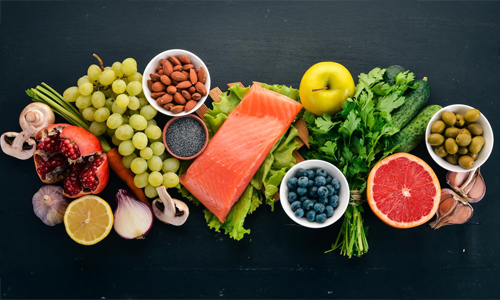Every parent wants the best for their child’s growth and development, and height is often a concern. While genetics play a significant role in determining a child’s final height, proper nutrition, including the right foods to grow taller, is equally important. As you read you can understand how to follow kids about “Foods to increase height in kids”
Foods to Increase Height in Kids

As parents, we all want the best for our children, and ensuring their healthy growth is a top priority. One crucial aspect of this is their height. While genetics play a significant role in determining a child’s height, proper nutrition is equally essential. In this guide, we’ll explore the best foods to promote your child’s growth and support their journey to reaching their full height potential.
- Lean Protein Sources: Certain types of protein-rich foods such as poultry like chicken and turkey, fish, and eggs, and dairy products such as milk and yogurt contain amino acids important for the growth of muscles and bones in kids.
- Dairy and Calcium-Rich Foods: Calcium-rich foods include any product made from milk, yogurt, cheese, and calcium-fortified plant-based milk.
- Colorful Vegetables: The veggies such as spinach, broccoli, kale, etc., contain the ingredients such as vitamins, minerals, and antioxidants that are essential for growth.
- Fruits: Most fruits such as oranges, strawberries, and kiwi among others are sources of vitamin C which helps in the development of collagen that is needed for strong bones.
- Whole Grains: Whole-wheat breads, brown rice, and oats are rich in fiber and other nutrients needed for growing.
- Nuts and Seeds: Vitamin E – found in almonds, chia seeds, and sunflower seeds – and magnesium also play a vital role in strong bones.
- Plant-based proteins: Legumes, like lentils and beans, contain protein and minerals like zinc and magnesium, which help with bone development.
Supplements for Kids’’s growth
There is no scientific evidence that any supplement can make a child grow taller. However, there are some supplements that may help to support overall growth and development, which could indirectly contribute to height gain.
- Calcium: Calcium cannot be overemphasized since it plays a key role in the formation of our bones and teeth. Muscle and nerve function is also enhanced as well as skin and tissue elasticity and overall well-being. Dietary requirements of children include about 1 300 mg of calcium for every single day. Some of the calcium-rich foods are those that are rich in dairy products, green leafy vegetables, and foods that are fortified with calcium.
- Vitamin D: It aids in the digestion of calcium. The daily required amount of vitamin D intake according to age is about 600 IU for children. Some of the foods rich in vitamin D include fish in fatty acid, and processed foods like milk, orange juice, and cereals.
- Magnesium: Otherwise, magnesium has a multitude of roles in the human body, including the strengthening of bones. According to the nutritional needs of children, they require about 400 milligrams of magnesium daily. Among the best foods that are high in magnesium are nuts, seeds, and whole grains.
- Zinc: Zinc is a cofactor for thousands of enzymes and is involved in various aspects of cell growth and development. These amounts reflect the recommended daily allowances for zinc, which children require for proper growth and development at around 11 milligrams per day. Some of the nutritional values of foods rich in zinc include red meat, poultry, and fish.
- Protein: Protein plays an important role in the formation of different tissues of the body as well as in the repair and growth process including the bones. Children, require around 1 gram of protein per every kilogram of their weight in a single day. Examples of protein foods are meat, poultry, fish, eggs, cheese, yogurt, and legumes.
It is important to note that taking too many supplements can be harmful. It is always best to talk to a doctor before giving your child any supplements because there isn’t proof that supplements for children to grow taller work.
Foods to Grow Taller at 13
Teenagers often experience growth spurts around the age of 13. We’ll address the specific nutritional needs of teenagers and discuss foods and nutrients that can support healthy growth during adolescence.
The Power of Milk

Milk is often hailed as a growth-promoting beverage and for a good reason. It contains:
- Calcium: A crucial nutrient in the body that is used in the metabolism of bones as well as the building of strong bones.
- Vitamin D: It assists the body to appropriately absorb calcium as a natural supplement.
- Protein: Supplies the organism with amino acids essential in growth.
- Other Nutrients: Milk also includes vitamins A and B 12, also riboflavin.
Vitamins and Nutrients for Height Growth

Certain vitamins and nutrients are vital for height growth:
- Vitamin A: Promotes the formation of bones and other body tissues. Obtain it in carrots, sweet potatoes, and spinach.
- Vitamin C: Helps in the synthesis of collagen which is vital in the maintenance of bones. Citrus fruits and strawberries are very good examples of fruits that are high in this vitamin.
- Vitamin D: Promotes the uptake of Calcium in the body Recommended for people who have poor calcium absorption Recommended for individuals who are celiac disease sufferers. Some of the sources are sunlight and fortified foods.
- Zinc: Reduces the body’s ability to fight infectious diseases and promote tissue growth. These are richly available in such foods as beans and nuts.
We’ll delve into the roles of these nutrients and where to find them in your child’s diet.
Balanced Diet for Child Growth
Nutrition is an important factor in the physical and cognitive development of the child. A good diet helps children get the right nutrients that would help in their height growth while at the same time supporting the growth of the muscular system, and the immune system, and helping to prevent weight problems. Besides height-increasing foods, there is a need for a prudent selection of foods to eat more to gain height.
Tips for Helping Your Child Eat a Healthy Diet:
- Make sure they have regular meals and snacks.
- Offer a variety of healthy foods at each meal.
- Don’t force them to eat foods they don’t like.
- Make mealtimes a positive experience.
- Be a role model by eating healthy yourself.
- Avoid using food as a reward.
- Eat healthy together as a family.
- Encourage physical activity.
Do’s and Dont’s: While Choosing Foods to Increase Height in Kids
| Do’s | Don’t’s |
| Serve low-fat dairy like milk, yogurt, and cheese with lower fat content. | Limit over-reliance on sugary drinks, soda, and opt for water as the primary beverage. |
| Limit portion sizes with appropriate portions based on your child’s age and activity level. | Avoid too much of processed foods. |
| Choose whole grains like whole wheat bread, brown rice, quinoa, and oats over refined grains. | Don’t give your child too much salt. Try replacing salt with pepper, herbs, and spices. |
| Introduce new foods gradually alongside familiar ones and be patient if your child is hesitant to try something new. | Don’t put pressure on your child Let them eat as much or as little as they want. |
Take Away:
By incorporating the right foods and nutrients into your child’s diet, you can provide them with the best chances for healthy growth. Remember, a balanced diet, physical activity, and regular check-ups with a healthcare provider are key to ensuring your child’s overall well-being and development.
FAQ’s
- What makes your child grow faster?
Your child’s growth is mostly dictated by heredity (DNA), but variables like good nutrition, adequate sleep, regular exercise, and sufficient exposure to sunlight can considerably influence their growth rate.
- Does eating healthy affect the childs height?
Yes, a healthy diet can help children grow taller. Poor nutrition can lead to stunting, which is when a child is too short for their age.
- How much protein is needed for growth of height?
Protein is important for growth and development. Increasing the amount of protein intake about 7 grams per day may increase height by 1 centimeter.
- Does skipping increase height?
Skipping does not directly increase height. But it can influence the increase of height apart from eating healthy.
- Which hormone is responsible for height?
Our brain’s pituitary gland produces the growth hormone and governs our height, bone length and muscle growth.
Valentina
Related posts
Women Tips
Privacy Overview
| Cookie | Duration | Description |
|---|---|---|
| cookielawinfo-checkbox-analytics | 11 months | This cookie is set by GDPR Cookie Consent plugin. The cookie is used to store the user consent for the cookies in the category "Analytics". |
| cookielawinfo-checkbox-functional | 11 months | The cookie is set by GDPR cookie consent to record the user consent for the cookies in the category "Functional". |
| cookielawinfo-checkbox-necessary | 11 months | This cookie is set by GDPR Cookie Consent plugin. The cookies is used to store the user consent for the cookies in the category "Necessary". |
| cookielawinfo-checkbox-others | 11 months | This cookie is set by GDPR Cookie Consent plugin. The cookie is used to store the user consent for the cookies in the category "Other. |
| cookielawinfo-checkbox-performance | 11 months | This cookie is set by GDPR Cookie Consent plugin. The cookie is used to store the user consent for the cookies in the category "Performance". |
| viewed_cookie_policy | 11 months | The cookie is set by the GDPR Cookie Consent plugin and is used to store whether or not user has consented to the use of cookies. It does not store any personal data. |

